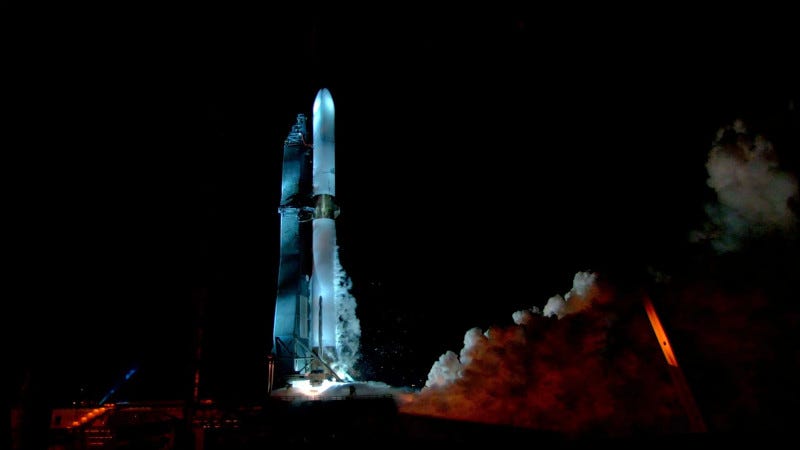FAA Grants Orbital Launch License to Blue Origin
Authorizes Operations from Cape Canaveral Space Force Station in Florida
The FAA has issued a Part 450 commercial space launch license authorizing the first launch of the Blue Origin New Glenn vehicle. The FAA determined Blue Origin met all safety, environmental and other licensing requirements.
“By working closely with Blue Origin, the FAA issued this new launch license well in advance of the statutory…




